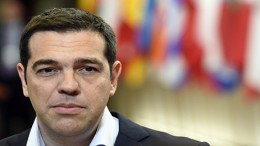Spain Is No Longer A Problem For Europe: There Are Other Fronts Open
The euro’s fourth biggest economy will not be the protagonist in long economic debates in 2017. Spain’s deficit and its domestic politics are no longer a concern for Brussels, now focused on the Brexit negotiations and worried about the complicated elections cycle in various countries.










